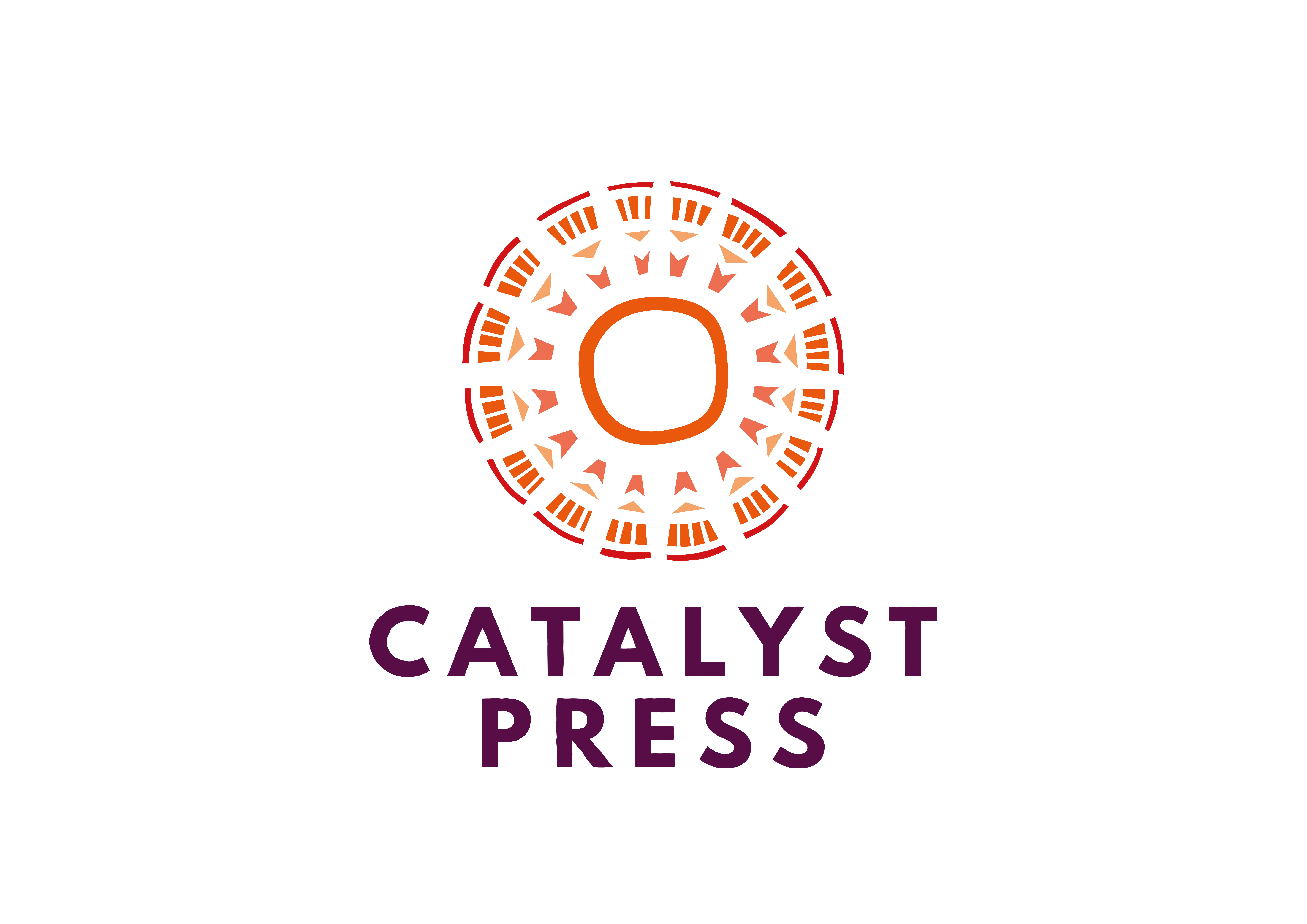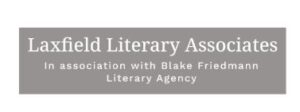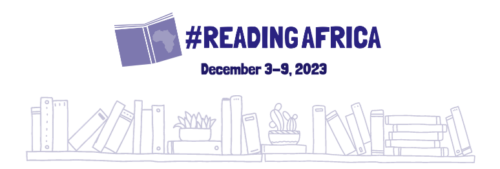Welcome back to this fabulous conversation between literary agents Raphaël Thierry and Emma Shercliff! Yesterday, Raphaël and Emma discussed their journeys towards agenting, the contract “just behind the book”, and protecting author rights. If you missed it, catch up here before tuning into Part 2 below!
Let’s dive back in!
Raphaël Thierry
I would be very curious to ask you, Emma, how do you just set up a relation with a writer? Are you always solicited? Or are you just trying to catch up with a writer when you met him or her and you have this opportunity? How do you create this link, because the connection you have with the writer is extremely important in your work as agent. I’m very curious to know how this relation is set up for you.
Emma Shercliff
So when I started, of course I set up a submissions process for my agency. But I thought initially, it would be about me going out and looking for people and really seeking out writers. And that certainly was the case to begin with. But now, many of the writers that I represent have come to me through personal recommendations from other writers. And that always feels like such a huge compliment, when an author that you have worked with and published yourself feels that you would make a good agent and then recommends you to somebody that they are either mentoring or know, so that’s been a very productive source of new writers for me. And there are other ways.
Recently, I approached an author that I heard on a podcast, a Ukrainian writer actually, and I just thought this woman is amazing, I want to reach out to her and so I did that. And another conversation I’ve had recently was with an author from a particular African country that I don’t yet represent any authors from. And I have been looking for a woman from that country for a long time. And so I reached out to her. So sometimes you can have in mind ideas of the type of writing and perhaps sometimes the geographical region and then if somebody happens to come across your radar from those areas, then your ears prick up. Is that the same for you, Raphaël?
I don’t want to sound a bit naïve but if I don’t feel confident enough with someone I’m working with, then how can a book find its way and how can I find perspective for this book?
Raphaël Thierry
It’s not completely the same but speaking about co-agenting that’s a very interesting take because I think everyone doesn’t know but as agents we cannot reach every part of the world in every language, so it’s very precious to cultivate these good relations and collaborations with other agents with whom we can collaborate on some projects and propose some books which might fit within the territory or language or country where they are more able to grasp the publishing industry and the publisher’s interest. And I feel as an agent, the first part of the work is maybe to have humility. And rather than doing everything ourselves, sometimes it’s better to build up strong relations in this industry.
And I really point out the industry aspect, because it’s also a business and within a business people are always central. And I don’t want to sound a bit naïve but if I don’t feel confident enough with someone I’m working with, then how can a book find its way and how can I find perspective for this book? And so it’s essential to have this close relation you were speaking about, this recommendation you got from writers, and that’s so heartwarming, but it’s also the proof that you’re professionally respected, and that you’re dealing properly with books, and that writers recognise it. And that’s very important, because the centre of their work as writers is to write. And the centre of your work as an agent is to deal with rights. And that’s essential, to be extremely clear on each position and each work, I guess.
Emma Shercliff
The experience I had at Cassava Republic was so formative for me in that respect, in that I loved the fact that we were so focused. As you’ll know, like anybody in the publishing world – and I was a publisher for 20 years – you’d go to an event or meet somebody socially and when you say you’re a publisher, then someone will say, Oh, my aunt’s best friend’s cousin’s daughter has written a book, can you look at it? Or, my next-door neighbour has written a children’s book, can you get her published? And I loved the fact that at Cassava Republic, I would always say, oh, does this writer have any African connection? And if the answer was no, then I would say, Oh, I’m sorry, you need to find someone else. I really loved that focus. You know, it’s a shift, it’s helpful.
So when I started the agency with this focus on authors from Norfolk and Suffolk, and then authors broadly from underrepresented backgrounds, I did state specifically on my website as I launched that I was looking for authors in Africa, the Middle East, and Ukraine, because they all geographical territories in which I’ve worked and that I feel very comfortable navigating. It’s helpful for authors, and it’s helpful for me. So I think that you’re right, you can’t take on the whole world or represent everyone. So being focused, particularly at smaller agencies like yours and mine, I think that’s really important. And of course, you’re undoubtedly going to feel more passionate about authors coming from those areas, or with those interests that you wish to represent.
One other thing I wanted to say, Raphaël, just talking about territories and rights, is that so much of the way I operate as an agent has been informed by the way I worked as a publisher and my experience as a publisher. So for example, I always reserve rights for African authors. If I’m taking on an author who has a link to say, Kenya or South Africa or Nigeria, I would always reserve rights for Africa, and then sell very specifically to publishers in those countries. That’s one of my agency commitments and I take it very seriously.
Raphaël Thierry
But that’s a very, very important point and I feel like we are a bit backwards within the Francophonie on this aspect. We are progressing, and especially – I was speaking about Pierre Astier – he did a lot of things on this side, speaking about territories and that this notion of world rights is not always natural in the book’s life. And that’s something which is, from what I understand, way more accepted within the Commonwealth, and all the English-speaking world maybe?
Emma Shercliff
Well, it’s interesting you say that because I think it’s only very recently it’s become more accepted. So you have authors and publishers like Lola Shoneyin and Bibi Bakare-Yusuf, people who’ve been very vocal on the importance of reserving African rights, for a variety of reasons. One, to support the publishing industries in individual African countries, but also for authors – to make their work widely available to people within their own communities and countries is hugely important. And often the only way of making that happen is by selling rights to an African publisher who can publish in their country. So I was really clear about that from the outset.
But of course, I understand I’m in a privileged position, having worked in African publishing directly and through my research for so long. But what I found hugely interesting is in the last six months, I’ve had four or five different publishers and agents approach me to ask if I can talk to them about how to sell rights in Africa. And it’s fantastic when you do something because it’s the right thing to do and it actually becomes a point of principle, and you hope you can influence other people across the industry. And of course, now that more African writers are being published by a wider variety of publishers, more African authors are being represented by a wider variety of agents, it’s really important to have that understanding across the industry.
Raphaël Thierry
I’m very happy that you’re saying that because sometimes it’s a bit scary to think that somehow writers within the Francophone world are still considering Paris, only one single city, as a hotspot for world literature, which is kind of crazy in 2022. But you can also understand some aspect of this situation, looking at the economy, but also about the past because the centralization has been so strong within the Francophonie and maybe this is a big difference between the Commonwealth and the Francophonie, that there is not the same centralism existing, since the postcolonial times at least, in this global English-speaking world. But now about these rights circulations, I feel like it’s evolving a little bit and I can just give you an example. Mutt-Lon, a writer from Cameroon, his novel Les 700 sept cents aveugles de Bafia.
It was first published in France and then, because he had kept his African rights, it was published in a co-publishing project in four countries – Guinea, Cameroon, Ivory Coast, and Togo. And so it was published in French. And because of this new publication, we were also able to represent it more efficiently internationally. And then we got – when I say we, it’s because I was at that time working with Astier-Pecher literary agency – we got some interest from in the US. And we got a translation in the US, and also an Arabic translation in Egypt.
I was at Sharjah International Book Fair recently, and I was so happy when I met the publisher, because he gave me this copy. And I was so proud for the writer, but also for myself, because I felt like this is the meaning of my work, this circulation and publishing your book in Africa means also something in terms of economy, maybe he will not sell 10,000 copies or, or maybe yes, in his own country. But this life of his work is also carrying many, many other opportunities. And it means that his work is internationally published and he is finding readers everywhere. And that’s an instance of how I feel this work has to be, and I can feel like then the writer feels also more confident in his own work for the future, which makes it exciting.
Emma Shercliff
And when you take on an author, assuming it’s a Francophone author, would you usually sell their work into France as your first priority?
But that’s a part of our job to see this long-term perspective and to feel like, okay, it’s not the right time, we will just wait and be reactive and responsive. And at some point, maybe we can do something this way again.
Raphaël Thierry
Not necessarily, I would say it’s easy to first agent in your direct publishing environment. I would rather say that we are considering everyone on the same basis. And then we follow up on the offer we can get or the expressions of interest, and we let every publisher who was interested know that there is someone who’s interested. And then we can see how this can take place and as a global project for the book, but with several contracts ideally. But there are many possibilities. Sometimes one publisher is not ready yet to have the book in the pipeline. So we can postpone it or just make the other publisher wait or to give world rights to this publisher and then work with him and collaborate with him on the sub-licenses.
Emma Shercliff
That’s interesting because I would say, it’s less common to do that in the Anglophone world. Almost always, certainly in my experience, you need to have a deal in English, in our first language, for the home market. And then once that’s done, then you go out to the foreign translation markets, and then people say, oh, it’s been published by Faber or Canongate, and then they look at that publisher. One of my Ukrainian authors already had a book in Ukrainian and in German, and then we were able to sell it in Poland, and now we’re doing the English translation. So that’s a bit different. But generally, when I am selling an author writing in English, I feel I need to sell it in the UK and the US before I can start to send it out more widely.
Raphaël Thierry
Yes, I think it’s a little bit similar, but at the same time, maybe the Francophone market is not as structured as the English-speaking world. And maybe this also explains that for you, there is always this order to follow. But if I’m very honest, it’s always easier to first target a Parisian or a French publisher. But it’s true that of course, we need to focus also on the priority for the writer who wants his book to be published as quickly as possible. And we cannot always find a publisher or be able to negotiate in the short term in this territory, then you need to be very, I would say, concrete.
Emma Shercliff
We had the experience at Cassava Republic of having an author who’s already published in, say, Nigeria, and we could sell that book in other English language speaking markets, or indeed other places.
Raphaël Thierry
By the way, Cassava, I think they – and you, because you used to work with them – I think it was really amazing what they did, because I think they were probably one of the very first African English-speaking publishers to translate Francophone books from recent writers. And this was very new in the environment. I think they’ve published recently, Abdourahman A. Waberi. They got some interest for their books. And this was extremely interesting. And now you can feel like there are other presses like Narrative Landscape also in Nigeria, who are really interested within this field. And I think there is a lot to be built. Yeah, and I’m really excited about that.
Emma Shercliff
And we also published Faïza Guéne, a French-Algerian writer. And I remember another situation where I had read a book in French, I really enjoyed it. And then, I presented it to my colleagues but because they couldn’t read it in French, they had to take opinions from other people. And nobody was enthusiastic enough. And that was a situation where I felt quite frustrated because I thought this author was great and I think we could have sold it very well. But the prevailing view was that there’s no point translating something if it’s just as good as what we have in English. It needs to be really top quality, you know, it needs to be over and above. And I understand and that’s the thing with translation. It’s really got to merit the work that goes into it, doesn’t it? Because it’s a huge undertaking.
That’s a really important part of my learning in recent years – to think about African literature not only as Anglophone literature, but also about Francophone and Lusophone writing.
Raphaël Thierry
Yeah. And sometimes it’s just not the right moment as a publisher. And you need to accept that as an agent. It’s sometimes frustrating. But that’s a part of our job to see this long-term perspective and to feel like, okay, it’s not the right time, we will just wait and be reactive and responsive. And at some point, maybe we can do something this way again.
Emma Shercliff
Raphaël, I wonder if you might like to just say, is there anything that’s coming through in your pipeline, either that you acquired at Astier-Pecher or things next year that you like to highlight?
Raphaël Thierry

I will just mention that I’m starting to work very strongly with Presence Africaine, we have so many interesting writers to represent – classics and contemporary writers. I think about Khalid Lyamlahy from Morocco, for example, he has a very interesting novel, Un Roman Etranger, which deals with a character’s three paths: a love story; the struggle to renew his papers to stay in France; and at the same time, his quest to write a novel. So it is three-sided novel, very fascinating. And otherwise, I’m very happy to have this collaboration with Lucy Mushita from Zimbabwe, her novel Chinongwa was first published in South Africa and then she recovered her rights, it wasn’t really successful there. Then it was published in France in 2012 by Actes Sud, it got some success in France. And then we started collaborating together at Astier-Pecher.
I restarted with Chinongwa, because she has other work, but I felt like okay, it’s important to begin again with Chinongwa which was the starting point of her career. And we recently sold rights in Zimbabwe, to Weaver Press, which is this legendary press, and at the same time to Modjadji Books in South Africa, which is this feminist press and I admire their work enormously. And we recently got some interest in another country and now we feel like, okay, it’s restarting, thanks to these two, first, a re-publication and a new edition of this very essential novel of the apartheid times. And I feel like this proves that we can sometimes believe in books that are maybe not so current. But they are so important in terms of literary work, and in what they represent for history and for literature. That’s an example I can think about.
Emma Shercliff
Yes, that’s a brilliant example.
Raphaël Thierry
So maybe you have other examples, I would be interested to know.
Emma Shercliff

Well, I’ll maybe talk more about two publications coming out next year that I’m really excited about. The first one is coming in early June, it’s by a Nigerian writer called Ani Kayode Somtochukwu, who is a queer rights activist based in Nigeria. And his debut novel, And Then He Sang A Lullaby, will be the first work published by Roxane Gay’s new imprint at Grove Atlantic, Roxane Gay Books. So that’s hugely exciting because Roxanne has done a phenomenal job editing it, and it will inevitably get a lot of attention as it’s coming from her imprint. But also because Kayode himself is a fantastic young, really talented young voice. And it’s been such a privilege to work with him. He literally wrote this book longhand, typed it up on a mobile phone and sent it off to Roxanne. I’m extraordinarily proud to represent him and I just can’t wait to see how it lands. We had a meeting with his UK publisher last week and they’re already getting huge praise coming in from book buyers and reviewers.
And then my second recommendation, which is also close to my heart, is Kalaf Epalanga’s Whites Can Dance Too. It was the first book that I sold as an agent, but because it was a translation it is obviously taking longer to come to market – and it has been a real collaboration. The translator is Daniel Hahn. He’s very well known – he translated Agualusa’s A General Theory of Oblivion. And Kalaf’s novel will be published by Faber, also in June. So the middle of the year is going to be really exciting. Watch this space!
Raphaël Thierry
Yes, I will for sure. And I can’t wait to discuss all these books with you. And that’s what we are doing, we are really trying to connect every time with people believing in books, not always the same books as us. But sometimes we can have surprises. Because we feel like I hadn’t thought about this, this aspect of literature, and then this person represents this. And I feel like that’s very important. And I will be so happy to collaborate with this person. Because she has a way of promoting and explaining the interest of this literature and I feel like it’s always a way of getting better, because you get all this richness and learning and then that’s a never-ending story.
Emma Shercliff
Yes, and just going back to what you said at the very beginning, about the fact that we met because we both had an interest in African literature, me primarily Anglophone, and then you primarily Francophone, but I think for both of us, we’ve graduated across those divides. And that’s a really important part of my learning in recent years – to think about African literature not only as Anglophone literature, but also about Francophone and Lusophone writing. And course there are initiatives like the Afrolit Sans Frontières initiative that Zukiswa Wanner set up in lockdown.
Raphaël Thierry
Yes, she’s a brilliant entrepreneur. And she’s setting up a very interesting publishing house in Kenya as well. Paivapo Publishers.
Emma Shercliff
Yes, it’s such a brilliant example of what we should all be doing a bit more of, I think.
Raphaël Thierry
And I should also mention that Accra will be the World Book Capital next year. Ghana will be the hotspot for publishing in 2023. This is an important rendez-vous we should all have in mind for the next year.
Emma Shercliff
Duly noted, thank you Raphaël! Great speaking to you today.
Raphaël Thierry
You too. Thank you very much for this conversation.
Thanks so much to Raphaël and Emma for this fascinating conversation and for participating in #ReadingAfrica Week 2022! We consider it a huge honor to work with both of you and can’t wait to see all the exciting projects you have on the horizon. Watch this space, everyone!







